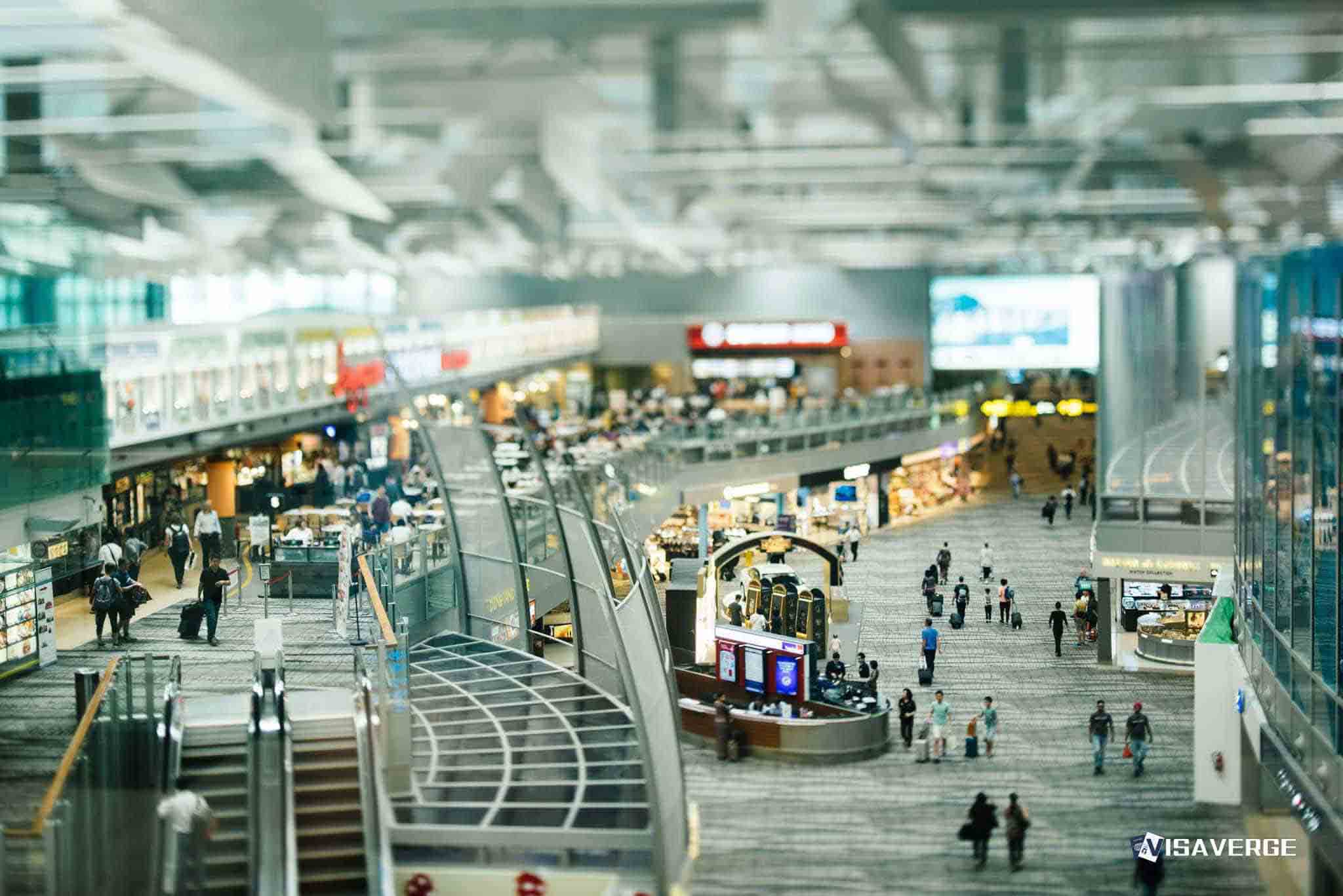Key Takeaways
• Europe expects over 300 million tourists in 2025, with Spain and Italy facing severe overtourism impacts.
• Spain and Italy have increased tourist taxes, tightened visa rules, and limited short-term rentals to control crowds.
• Mandatory bookings and creative enforcement methods help manage visitor flow and protect fragile historic sites.
Europe’s Tourism Surge in 2025: How Spain 🇪🇸 and Italy 🇮🇹 Are Responding to Overtourism
Europe is experiencing a record-breaking wave of tourism in 2025, with destinations like Spain 🇪🇸 and Italy 🇮🇹 at the center of the action. Over 300 million tourists are expected to visit hotspots such as Mallorca, Barcelona, Rome, Venice, and Tenerife this year. While tourism brings economic benefits, the sheer volume of visitors is causing serious problems—known as overtourism—for local communities, the environment, and city infrastructure. In response, European governments and city officials are rolling out a mix of new rules, taxes, and even creative tactics to manage the crowds and protect their cities.

What’s Happening and Why Now?
The surge in tourism comes after a sharp drop during the COVID-19 pandemic. As travel restrictions lifted, people rushed back to their favorite European destinations, eager to explore and enjoy. However, the numbers have now surpassed pre-pandemic levels, putting immense pressure on cities that are already struggling with limited space, fragile historic sites, and housing shortages.
Overtourism—when too many tourists overwhelm a place—has become a daily reality in cities like Barcelona and Venice. Locals are finding it harder to go about their lives, natural sites are suffering, and the cost of living is rising. This has led to protests, stricter rules, and a growing debate about how to balance tourism with the needs of residents.
How Are Spain 🇪🇸 and Italy 🇮🇹 Fighting Overtourism?
Governments and local authorities are taking action on several fronts. Here’s a closer look at the main strategies being used:
1. Tourist Taxes: Making Visitors Pay Their Share
Many cities have increased or introduced tourist taxes—fees that visitors must pay when staying overnight or entering certain areas. The money collected is used to repair roads, clean public spaces, and protect historic sites.
- In Spain 🇪🇸, cities like Barcelona and the Canary Islands have raised tourist taxes. Visitors pay these fees when booking hotels or short-term rentals.
- In Italy 🇮🇹, cities such as Venice and Rome have also hiked their tourist taxes. Venice, for example, now charges day-trippers a special entry fee to help cover the costs of maintaining its canals and historic buildings.
These taxes are meant to make tourism more sustainable by ensuring that visitors help pay for the impact they have on local communities.
2. Visa Rejections and Stricter Entry Rules
To control the number of tourists, some countries are making it harder to get a tourist visa. Visa rejections have reportedly increased, especially for travelers from countries with high numbers of outbound tourists. While official numbers are not always made public, travelers are noticing longer wait times and more paperwork.
- Spain 🇪🇸 and Italy 🇮🇹 have both tightened their visa policies. Applicants may need to show more documents, prove they have enough money for their stay, or answer more questions about their travel plans.
- These changes are designed to slow the flow of visitors and give priority to those who are more likely to respect local rules.
If you are planning a trip, it’s important to check the latest visa requirements and apply early. You can find official information and application forms on the European Commission’s immigration portal.
3. Booking Systems and Visitor Caps
To prevent overcrowding at popular sites, many cities have introduced mandatory booking systems. This means you must reserve your spot in advance—sometimes weeks or months ahead.
- In Barcelona, you need to book tickets online for famous attractions like the Sagrada Familia.
- Venice has started requiring visitors to book their entry to the city on busy days, especially during festivals or cruise ship arrivals.
These systems help spread out visitors and protect fragile sites from damage.
4. Restrictions on Short-Term Rentals
Short-term rentals, such as those listed on Airbnb, have made it easier for tourists to find places to stay. But they also reduce the number of homes available for locals, driving up rents and making it harder for residents to find housing.
- Spain 🇪🇸 and Italy 🇮🇹 have both introduced new rules to limit the number of short-term rentals. In some areas, only licensed properties can be rented to tourists, and there are strict limits on how many days per year a home can be rented out.
- These rules aim to keep more housing available for locals and reduce the pressure on neighborhoods.
5. Fines and Creative Enforcement
Some cities are using creative methods to encourage good behavior from tourists. For example, in Spain 🇪🇸, local authorities have used squirt guns to gently remind unruly tourists to respect public spaces. While this may sound playful, it’s part of a broader effort to enforce rules and keep public areas safe and pleasant for everyone.
Other measures include:
- Fines for littering, noise, or disrespectful behavior.
- Bans on cruise ships docking in certain ports to reduce crowding and pollution.
- Increased police presence in tourist hotspots.
6. Focus on Hotels as Main Drivers of Overtourism
While home-sharing platforms like Airbnb often get the blame for overtourism, recent data shows that hotels are the main source of the problem. In 2024, hotels accounted for nearly 80% of all guest nights in the European Union. The top 10 most visited cities saw a 2.5 times increase in hotel stays between 2021 and 2023.
Theo Yedinsky, Airbnb’s Vice President of Public Policy, has called on city leaders to focus on the hotel industry when making new rules. According to analysis by VisaVerge.com, this shift in focus could help create fairer and more effective policies.
What Does This Mean for Tourists?
If you’re planning to visit Spain 🇪🇸, Italy 🇮🇹, or other popular European destinations in 2025, you should be prepared for some changes:
- Higher Costs: Tourist taxes will add to your travel budget. Make sure to check the fees for your destination before you go.
- Advance Planning: You may need to book tickets for attractions and even city entry well ahead of time.
- Stricter Accommodation Rules: Only stay in licensed hotels or rentals to avoid fines or being turned away.
- Possible Visa Delays: Apply for your visa early and make sure you have all required documents.
- Behavioral Expectations: Follow local rules and respect public spaces. Fines for bad behavior are more common than ever.
Step-by-Step Guide for Tourists
Here’s a simple checklist to help you prepare for your trip:
Before You Travel:
– Check Visa Requirements: Visit the official immigration website for the latest rules and apply as early as possible.
– Budget for Tourist Taxes: Find out how much you’ll need to pay in tourist taxes and include this in your travel budget.
– Book Attractions in Advance: Reserve tickets for museums, landmarks, and city entry if required.
– Choose Licensed Accommodation: Make sure your hotel or rental is properly registered.
During Your Stay:
– Follow Local Rules: Pay attention to signs and instructions, especially in crowded areas.
– Use Public Transport: This helps reduce traffic and pollution.
– Respect Residents: Keep noise down, dispose of trash properly, and avoid blocking sidewalks.
After Your Visit:
– Share Feedback: Many cities ask for feedback from visitors to improve their tourism policies.
Why Are These Changes Happening?
The main goal is to make tourism more sustainable. While tourism brings money and jobs, it can also cause problems if not managed well. Too many visitors can:
- Damage historic buildings and natural sites.
- Make it hard for locals to find affordable housing.
- Overwhelm public transport and services.
- Lead to pollution and waste.
By introducing tourist taxes, stricter visa rules, and limits on rentals, cities hope to protect their unique character and quality of life for residents.
Who Is Affected?
Tourists: You may face higher costs, more rules, and longer waits for visas. However, these changes can also mean a better experience, with less crowding and better-maintained attractions.
Residents: Locals may see some relief from overcrowding and housing shortages, but tensions remain high in many places. Protests have become more common, especially in Spain 🇪🇸, where residents are demanding stronger action.
Businesses: Hotels and rental platforms must adapt to new regulations. Some may see fewer bookings, while others could benefit from less competition.
Governments: Officials must balance the economic benefits of tourism with the need to protect their cities and residents. This is a complex task that requires constant adjustment.
Expert Opinions and Future Trends
Experts agree that overtourism is a serious challenge that requires creative solutions. Some suggest:
- Promoting lesser-known destinations to spread out visitors.
- Encouraging travel during off-peak seasons.
- Investing in better infrastructure to handle crowds.
- Using technology to manage visitor flows and collect data.
Environmentalists warn that without strong action, the damage to historic sites and natural areas could be permanent. Economists point out that while tourism is vital for many local economies, unchecked growth could hurt long-term sustainability.
As reported by VisaVerge.com, the debate over how to manage overtourism is likely to continue, with more cities experimenting with new policies and enforcement methods.
Background: How Did We Get Here?
Overtourism has been a growing problem for more than a decade. Cities like Venice and Barcelona were among the first to introduce tourist caps and rental restrictions. The COVID-19 pandemic gave these places a temporary break, but the return of mass tourism has brought old problems back—often worse than before.
The current wave of policy changes reflects lessons learned during the pandemic and growing public demand for sustainable tourism. Officials are now more willing to try bold ideas, from digital booking systems to creative enforcement like squirt guns.
What’s Next for European Tourism?
Looking ahead, expect to see:
- More Digital Tools: Online booking systems and visitor quotas will become more common.
- Stricter Visa Controls: Countries may continue to raise the bar for tourist visa approvals.
- Higher Tourist Taxes: Fees are likely to keep rising to fund city maintenance and preservation.
- Investment in Infrastructure: Cities will spend more on public transport, waste management, and site protection.
- Ongoing Debate: The balance between economic growth and quality of life will remain a hot topic.
Where to Find Official Information
For the latest updates on tourism policies, visa requirements, and local rules, check these resources:
- European Commission Tourism Portal: Official news and statistics on tourism in the European Union.
- Local tourism boards for cities like Barcelona and Venice: For details on booking systems and tourist taxes.
- National immigration offices for Spain 🇪🇸 and Italy 🇮🇹: For visa application forms and requirements.
Conclusion: What Should Travelers Do?
If you’re planning a trip to Europe in 2025, the best advice is to plan ahead, stay informed, and respect local rules. Overtourism is a real challenge, but with careful planning and responsible behavior, you can enjoy your visit while helping to protect the places you love.
Remember to:
- Apply for your visa early and check for any new requirements.
- Budget for tourist taxes and other fees.
- Book attractions and accommodations in advance.
- Follow local rules and respect residents.
By doing your part, you can help ensure that Europe’s most beautiful destinations remain vibrant and welcoming for years to come.
Learn Today
Overtourism → When too many tourists overwhelm a destination, causing environmental, social, and infrastructural problems.
Tourist Taxes → Fees charged to visitors to fund maintenance and protection of public spaces and historic sites.
Visa Rejections → Denial of tourist visa applications, often due to stricter entry requirements or incomplete documentation.
Short-Term Rentals → Temporary lodging options like Airbnb that can reduce housing availability for local residents.
Mandatory Booking Systems → Requirement for tourists to reserve entry or tickets ahead to control visitor numbers at popular sites.
This Article in a Nutshell
Europe’s 2025 tourism surge stresses Spain and Italy, causing overtourism. New taxes, visa restrictions, booking systems, and fines aim to protect cities and residents while preserving attractions sustainably.
— By VisaVerge.com








